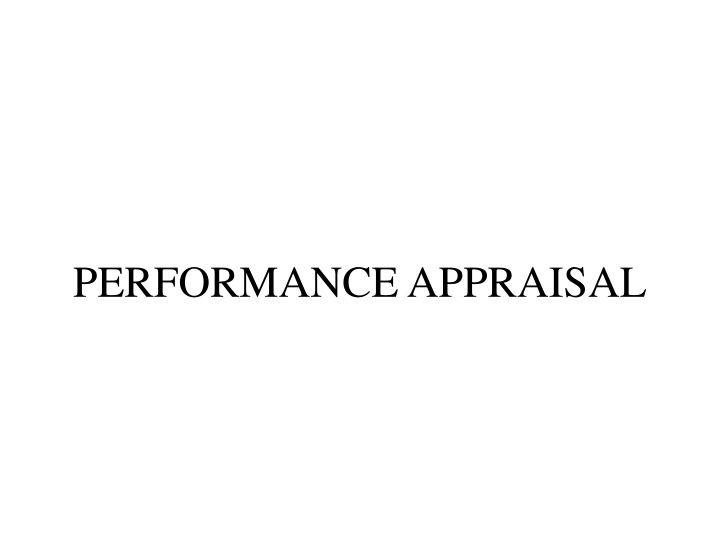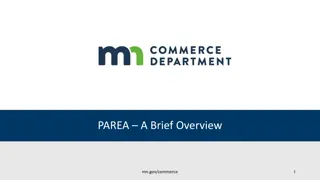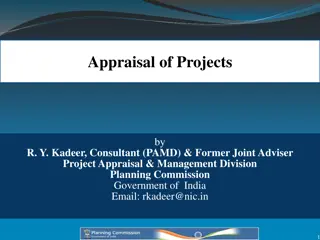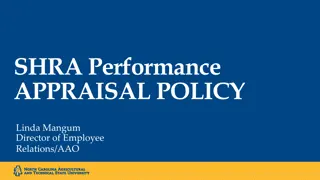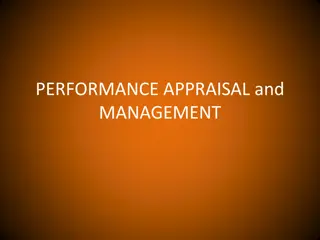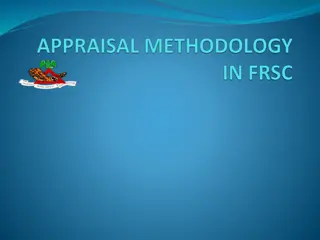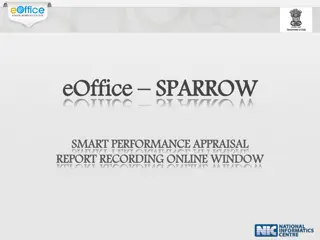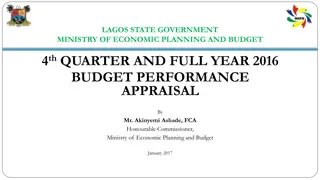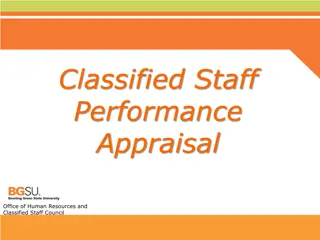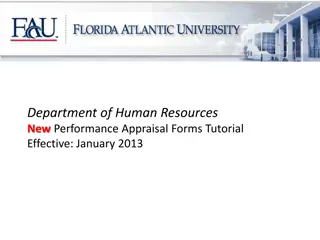Comprehensive Course on Performance Appraisal and Management
This course aims to equip future managers and supervisors with knowledge and skills for conducting performance appraisals effectively. Covering topics such as process, communication, organizational implications, and more, it provides a thorough understanding of performance management systems and interventions. Emphasizing fairness, accuracy, development, and alignment with organizational goals, the course ensures that participants can harness performance appraisal for continuous improvement.
Download Presentation

Please find below an Image/Link to download the presentation.
The content on the website is provided AS IS for your information and personal use only. It may not be sold, licensed, or shared on other websites without obtaining consent from the author.If you encounter any issues during the download, it is possible that the publisher has removed the file from their server.
You are allowed to download the files provided on this website for personal or commercial use, subject to the condition that they are used lawfully. All files are the property of their respective owners.
The content on the website is provided AS IS for your information and personal use only. It may not be sold, licensed, or shared on other websites without obtaining consent from the author.
E N D
Presentation Transcript
Course Profile Course Title Performance Appraisal & Management Code MSMSR/MBA 306(H) Program MBA Total Credits Total Number of Sessions 50 Session Duration 45 minutes Faculty/course facilitator Dr. Bharati Pujari
Course Objectives The objective of this course is to equip students with comprehensive knowledge and practical skills to improve their ability for performance appraisal in their organisations. It is particularly intended for future managers and supervisors who performance appraisal of their subordinates will conduct the
Syllabus Module 1:-Concept, Characteristic, Role, Objectives and Significance of Performance Appraisal; Performance Appraisal vis-a-vis Performance Management, Process of Performance Management; Performance Management and Strategic Planning Linkages. Module 2:-Historical Review of Performance Appraisal, Job Description and Performance Appraisal, Job Analysis in Performance Appraisal Systems, Performance Planning and goal setting, Process and Documentation of Performance Appraisal; Appraisal Communication ; Appraisal Interview; Performance Appraisal and its Organisational Implications
Syllabus Module 3:-Establishing and operationalising performance management system; measuring performance-results and behaviour; performance review; Methods of Performance Appraisal; Appraisal Forms and Formats; performance and training, performance feedback coaching and counseling; harnessing performance management system for performance improvement. Module 4:-Performance management strategic and interventions; reward based performance management; career based performance management, term based performance management. Module 5:-Issues and Problems in Performance Appraisal, Culture based performance management; measurement based performance management; competency based leadership based performance management; Legal and Ethical Perspectives in Performance Appraisal. conducting performance management;
Module-1 Definition- Performance appraisal is an objective assessment of an individual performance against well defined benchmarks.
Characteristics Fair & Accurate The system must be efficient Continuous, Flexible & Intuitive The system must focus on Employee Development Aligned towards org. goals Aligned towards org. culture & values The system must help with goal setting & tracking Integrates all aspects of employee development Customization, security & Integration
Objectives Of Performance Appraisal. Developmental Uses. Administrative Uses. Organisational/ Maintainence Uses. Documentation Purposes.
Significance It Provides a Look into the Future Helps Create Development and Training Strategies Provides Clarity in the Organization Provides the Opportunity for Exchanging Feedback Increases Employee Retention It encourages employee recognition and reward Boosts Employee Engagement It helps in boosting employee productivity and engagement Helps to enforce goal setting and achievement It offers mentoring for increasing performance
Comparison Performance appraisal evaluates previous performances and effectively communicates how an employee has worked in a current task. It does not provide a strategy for future growth. Performance appraisal only evaluated employee s performance objectively for the year and gave final feedback Performance appraisal evaluates an employee's mistakes and communicates how an employee could have given better efforts. Performance appraisal takes place not more than twice a year. Performance appraisal typically uses a quantitative approach. Performance management is flexible. Performance management, on the other hand, focuses on expending time and resources on employees for the growth of the company. Performance management ensures that the employee has accomplished the set goals or not. It also guides them with blockers on the way. Performance management, on the contrary, guides employees so that they can perform better in the future. Performance management contrastingly is a continuous process Performance management, however, uses a mix of both qualitative and quantitative approaches Performance appraisal is inflexible.
Example of Performance Appraisal BC company has done significantly well in the last few months. There has been a considerable reduction in overhead costs and the production has improved by 39%. Undoubtedly, it is because of the employees who managed to achieve their goals. Based on the feedback we have received so far, it is evident that our employee Samaira Chaudhuri has made notable contributions to this project. Employee name - Samaira Chaudhuri Position - Marketing Manager Employer name - Nishant Ray Department - Marketing Review period - January 8, 2021 - April 7, 2021 Samaira has shown clear communication in expressing her expectations and ideas. She efficiently organizes meetings and seminars, and effectively conveys her messages to the clients. Samaira has shown commendable levels of dedication and perseverance in achieving company goals. She has improved her productivity by 79%
Design Appraisal Programme Formal vs. Informal The first step in designing the appraisal programme is to decide the appraisal should be formal or informal. Formal Appraisals usually occur at specified time periods-once or twice the year. Informal appraisals can take place whenever supervisor feels the need for communication.
Designing an appraisal program poses several questions, which need answers. They are: 1. Whose performance is to be assessed???? 2. Who are the appraisers???? 3. What should be evaluated???? 4. When to appraise???? 5. What problems are encountered???? 6. How to solve the problems???? 7. What methods of appraisal are to be used????
Use of Appraisal Data Remuneration administration. Validation of selection programmes. Employee training and development Programmes. Promotion, transfer and lay off decision. Grievance and Discipline Programmes. HR planning.
PERFORMANCE APPRAISAL USED BY NOKIA Nokia holds a strategy review process every six months - a year being too long in the mobile phone business. The review is followed by a discussion with individuals about what they need to be doing and the support they need to do it. According ot them, "If a person is clear on what to do, you don't need to tell them. They're naturally empowered. What's important is the quality of the discussion.
WHY DID IT BEGAN HCL realized that in service industry the value gets created not in the back office but in face to face interaction between the customer and employees. Hence it is important to empower employees so that they deliver more value to the customers. When an employee is delighted, he will delight the customer. This gave birth to a path breaking philosophy called : 'Employee First, Customer Second , termed by Fortune as "The most modern management idea
Performance management & Strategic Planning
